BACK TO RESEARCH WITH IMPACT: FNR HIGHLIGHTS
BACK TO RESEARCH WITH IMPACT: FNR HIGHLIGHTS

Stemming from Italy, Indonesia, Luxembourg, Portugal and Spain, the members of the Experimental & Molecular Immunology Group truly are an international team. In the group of FNR ATTRACT Fellow Prof Dr Dirk Brenner at the Luxembourg Institute of Health (LIH), the team of young researchers investigates different aspects of the immune system with one common goal: Understanding how our immune system is regulated by different mechanisms – and how this knowledge can be used to combat disease.
The immune system is our main defence against infections and disease – yet diseases related to the immune system are some of the most common in the world: asthma, diabetes, multiple sclerosis and cancer, just to name a few.
Comprised of a complex and vast network of cells that interact with each other and other cell types in the body, the immune system’s cells respond to pathogens (seen as ‘strangers’) – such as bacteria and virus. To keep us healthy, it also needs to respond to altered cells, for example a cancer cell. However, if our immune system does not work the way it should – when it is not regulated correctly – it can do the opposite and cause illness.
On one hand, if the immune system is compromised, infections or tumour cells can take advantage and grow without being perceived as a threat. On the other hand, if it is too reactive, it can falsely flag our own cells as strangers and start attacking them. This causes autoimmune diseases such as lupus or multiple sclerosis.
This is where the Experimental & Molecular Immunology Group at the LIH comes in: they want to understand the intricate system that regulates the immune response in health and disease. A particular focus is put on the regulation of the metabolism of immune cells: it is essential for their function.
“In other words, different immune cells, under different conditions, use energy sources in distinct ways”, the group explains:
“The metabolic (energetic) specificity of each cell type and situation might give us insights on how to manipulate the immune system in a therapeutic way for a better disease outcome.”

The team has a hypothesis that a group of chemical species containing oxygen called reactive oxygen species (ROS) – produced as metabolic by-products – are involved in the regulation of the immune system. The group’s research has already uncovered that these molecules play a key role in regulating the cells of the immune system and that they impact the function of those cells.
To this end, each group member investigates a different aspect of the immune system and its regulation: Henry looks at what role ROS plays in immune tolerance; Leticia investigates how changes in the system’s metabolism can impact its ability to protect. Lynn looks at which role ROS plays in gastro-intestinal bacterial infection; Luana investigates Lymphoma – that arises from uncontrolled proliferation of immune cells; Davide is focused on how ROS influences a type of white blood cell called the B cell.
Below we take a closer look at the five team members and the role they play in the group’s quest to fully understand how the body’s main defender truly works and how this knowledge can be used to treat and prevent disease:
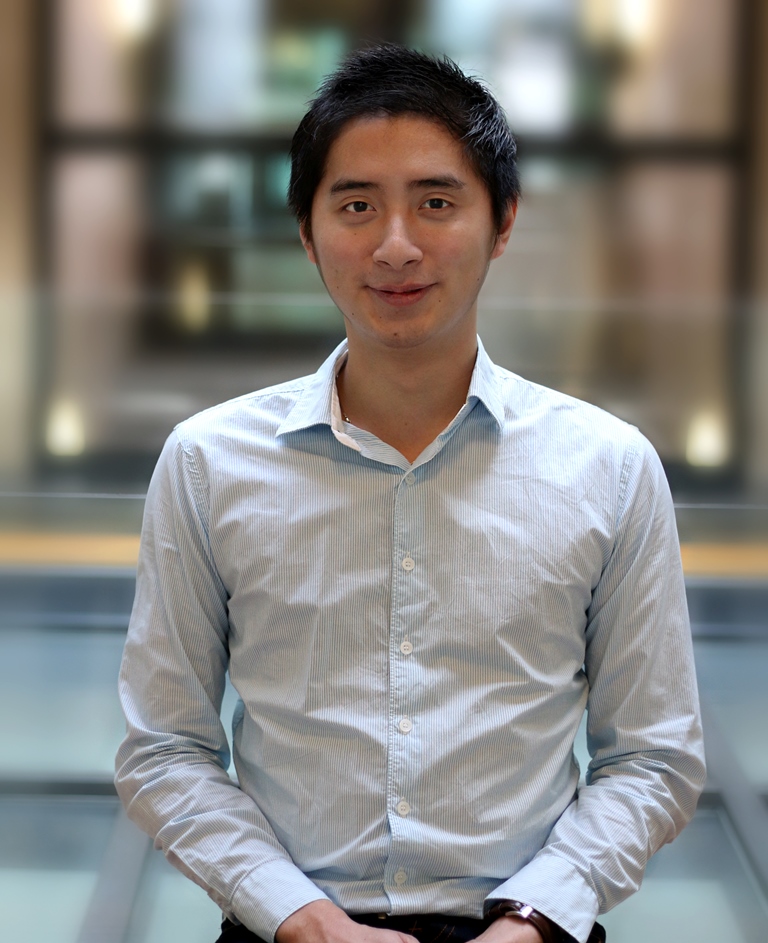
“My main goal as a researcher would be to give useful or meaningful knowledge to the scientific community”
Henry Kurniawan, PhD candidate
Nationality: Indonesia
Your work in the group revolves around a specific type of immune cell, can you go in to more detail?
“The focus of my project is on determining the role of reactive oxygen species (ROS) in immune tolerance.
“This mechanism is extremely important to prevent over-activation of the immune system as well as having pathogenic role in compromised immune system).
“ROS is constantly produced in our body, therefore knowing what effect ROS have on our immune cells might help us to find ways to regulate our immune system to mitigate disease consequences.”
Did you always want to be a researcher?
“Since I was a child, I have always been interested in the medical field. Initially I wanted to become a medical doctor, however having the image of an opened human body was a little bit overwhelming for me. Therefore I decided to l pursue my interest in the medical field from another direction by becoming a researcher.
“To work on this project in Dirk Brenner’s group was pure luck. When I finished my education in the Netherlands, I always thought that big research in Europe is mainly done in Netherlands, Germany, France, Belgium or UK. However after reading about research in Luxembourg and more importantly the project in the group which sounds very exciting, I was convinced that I could do something interesting and new.”
Do you have any particular aims as a researcher?
“My main goal as a researcher would be to give useful or meaningful knowledge to the scientific community through my work. Contributing to the discovery of new therapy to improve someone’s life would always be a plus.“
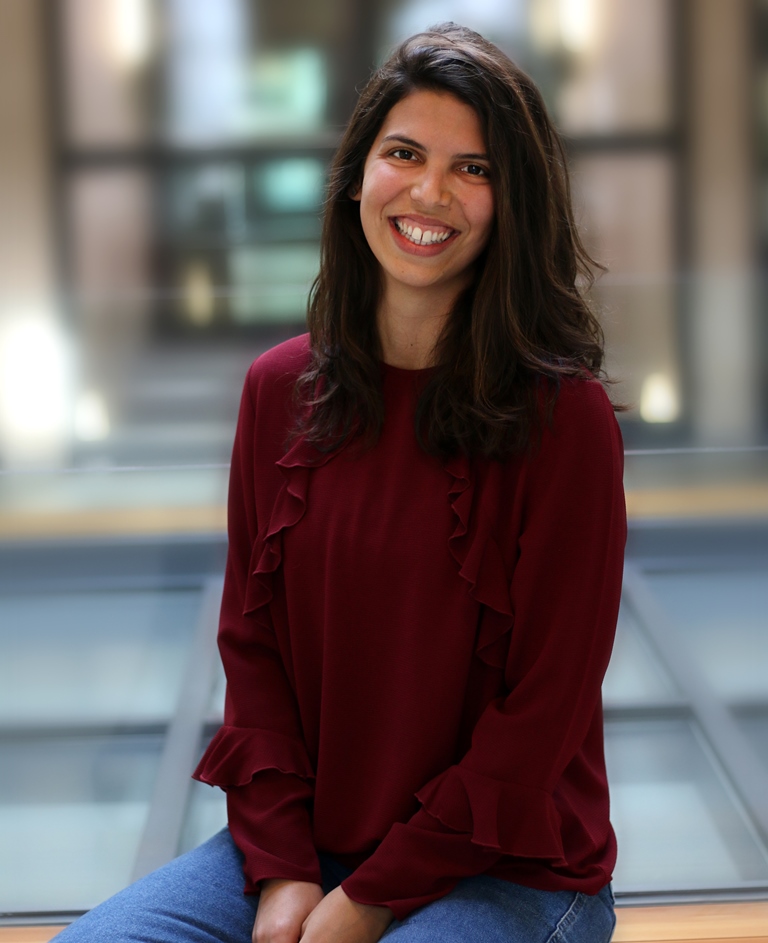
“Doing research is as frustrating as rewarding – it teaches you patience, perseverance and how to enjoy the small victories.”
Luana Guerra, PhD candidate
Nationality: Portugal
Your immunology research is focussed on cancer, can you tell us more?
“My PhD project focuses on lymphoma, which is a type of cancer that is characterised by the uncontrolled growth of an immune cell. Due to their high activity and expansion, tumour cells consume high amounts of energy and produce reactive oxygen species (let’s call it the “toxic waste” of the cell).
“I am particularly interested in how these lymphoma cells can modulate the high amounts of toxic waste they produce without dying. Being able to crack this narrow balance can not only bring new therapies for lymphoma treatment, but also elucidate mechanisms of how these immune cells function in normal conditions.”
What inspired you to pursue a career in research, and why Luxembourg?
“For me, curiosity is the essence of the human mind. Research slowly came in my life as the answer for asking too many questions.
“The beauty of being a scientist is that you will never get tired of asking “why” and “how” and “when” – and seek the logical solutions for these questions in a logical environment. You are allowed to make an educated guess, fail, take a major risk and maybe succeed… or try again. Doing research is as frustrating as rewarding – it teaches you patience, perseverance and how to enjoy the small victories.
“The complexity and efficiency of the human body always fascinated me and, in particular, the immune system. It is still astonishing how we have a network of cells that are so tightly balanced, protecting us against several diseases and how a small change in this stability can cause infections, cancer or multiple sclerosis, for example.
“Choosing Luxembourg (and our group in particular) was an “educated guess” of a scientist-to-be. I was aware that this country was not the “hot spot” for research in Europe. Nevertheless, I saw great efforts being made by the government (financing) and great scientific potential. Our group was working on the specific field I was interested in, doing high-end research using state-of-the-art facilities and models.”
Do you have an overall aim, or question, you hope to answer with your research?
“In basic research, we tend to focus on the curiosity of ‘how things work’. However, overall, I would like to know that these small answers will have an impact on the well-being of someone, that they will be translated to a therapy. I am mostly interested in how we can “trick” the immune system to fight cancer.
“Nevertheless, I see “bench to bed side” research as a network as complex as our own immune system. We will only find innovative and efficient therapies when we tackle the disease from several perspectives. Otherwise, it will escape.”
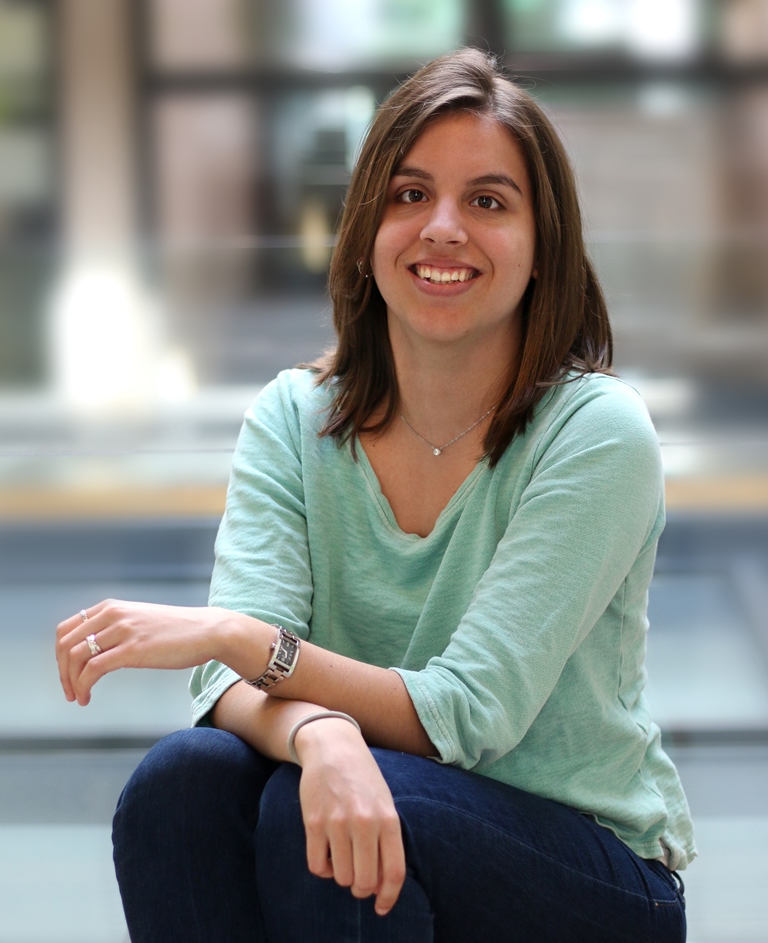
“I would like the research I am working on to help the development of new therapies to treat diseases that are still poorly understood.”
Leticia Soriano Baguet, PhD candidate
Nationality: Spain
Your focus is on the immune system’s metabolism, can you tell us more?
“I study how changes in the metabolism of the immune system can alter the functionality and its capacity to protect us against diseases. It has been described that our immune system needs to adapt its metabolism to fight pathogens and infections. To that end, immune cells consume more nutrients and tailor their metabolism to the function needed.
“In diseases such as cancer and autoimmunity, immune cell metabolism is altered, which further increases the complexity of these diseases. Therefore targeting regulatory metabolic circuits of the immune system is promising for treatment of a broad spectrum of diseases.”
What was your inspiration for becoming a researcher, and how did you join your current research group?
“I decided to become a researcher because I like the challenge of finding answers to complicated questions. Especially if those answers could help for a better understanding of the human body’s function and the development of new therapies to treat patients.
“I wanted to work in the Experimental & Molecular Immunology group at LIH because the projects are focused on improving the knowledge of relevant questions in the field of immunology which is what I specialized in during my Masters’ studies in Barcelona, Spain.”
What do you hope to achieve with your research?
“I would like the research I am working on to help the development of new therapies to treat diseases that are still poorly understood. I also hope that the research I do adds to the knowledge of the immune system – its function is a main pillar of our health.”
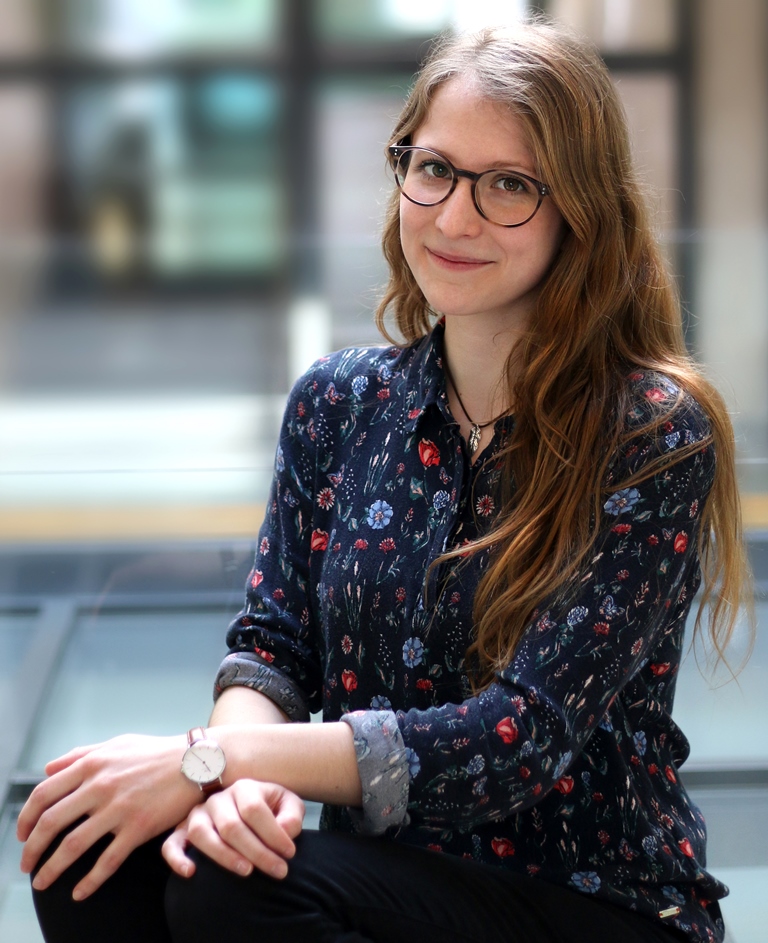
“The most satisfying feeling for a researcher is to see that the work we do actually improves the lives of patients and all those close to them.”
Lynn Bonetti, PhD candidate
Nationality: Luxembourg
Your work involves reactive oxygen species (ROS), similar to Henry’s work, but you look at ROS in a different connection, can you elaborate?
“My project focusses on the role of ROS in the pathogenesis of a gastro-intestinal bacterial infection. We aim to elucidate the effects of ROS on the immune response during this infection. A better understanding on how ROS influence immune cells in the gut could provide knowledge for new therapeutic strategies, not only for treating bacterial infections but also inflammatory bowel diseases (IBD) like Crohn’s disease.
“Gastro-intestinal infections are still a main cause of mortality especially in children in developing countries, while IBD become more and more prevalent in industrialised countries.”
You have always been a big fan of biology – how did you decide to become a researcher, and in why the immune system?
“I have always been fascinated by the field of biology. As a child, it seemed to me like this mysterious science, which could explain all the secrets of life. I decided that I wanted to become a researcher after I realized that despite everything we know, we still remain powerless against a lot of diseases and medical conditions.
“As a researcher, I can satisfy my curiosity for the field and may even contribute to the wellbeing of people and their families. I discovered the principle of immunotherapy during my bachelor in general biology. The idea of treating diseases by the use of our own immune system sounded like the most logical solution against a variety of diseases. That’s why I absolutely wanted to work in the field of immunology, which is the straight focus of the group I am currently working in.”
Do you have any particular goals you hope to achieve with your research?
“Of course I would like my research to contribute to developing new therapies against diseases. If we fully understand the basic functioning of our body’s own defence system against diseases, we might one day be able to manipulate it in a controlled way in order to fight diseases to this day are. I guess the most satisfying feeling for a researcher is to see that the work we do actually improves the lives of patients and all those close to them.”
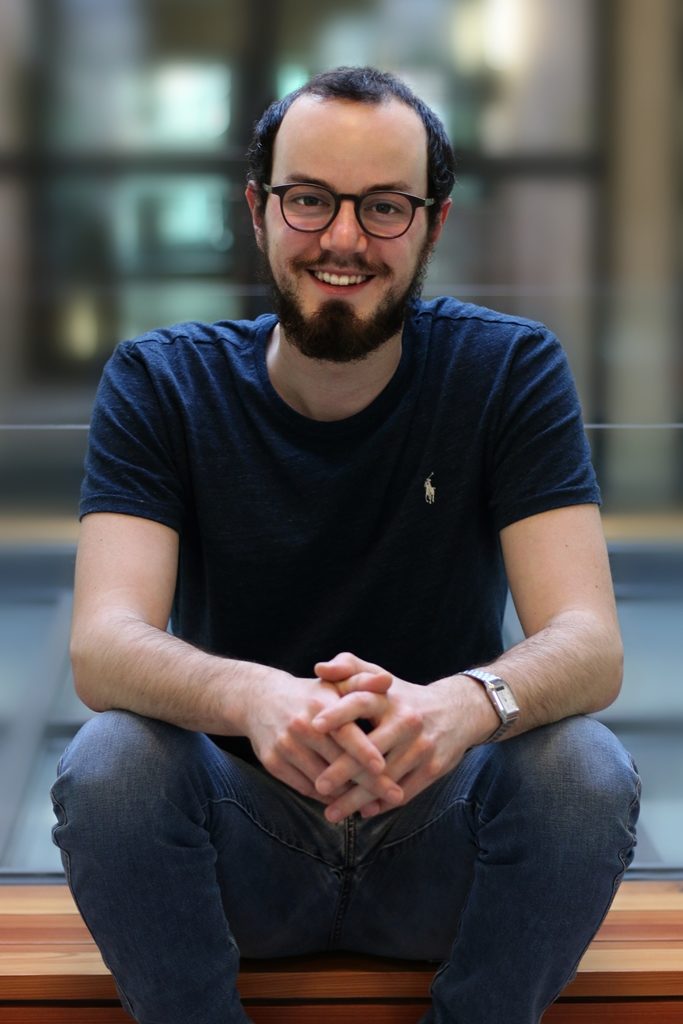
“Discovering new phenomena and creating new knowledge is the ultimate goal of research.”
Davide Franchina, PhD candidate
Nationality: Italy
Your work also relates to the reactive oxygen species (ROS), specifically how it affects a certain type of white blood cell. Can you tell us more?
“During my PhD, I try to understand how reactive oxygen species (ROS) influence B cell (a type of white blood cell) physiology and activation. B cell biology has peculiar features that are not found in any other immune cell: One of the main function of a B cell is to produce and release antibodies, proteins that have a variety of functions in the process of the body’s defence.
“Understanding how these processes are regulated by antioxidants would provide an extra layer of complexity in the regulation of the B cell response, which is important to tackle immune-mediated diseases, e.g. lupus.”
Why did you choose research – and why this topic?
“Research is driven by passion and curiosity, and I like solving puzzles. Becoming a scientist is a process that requires flexible thinking. This intellectual flexibility is acquired over time and the study of different areas of your field of interest is of help to stretch out new networks. This is why I became interested in B cells, a cell population with several subsets, which play an important role in the adaptive immune response, yet they respond very quickly to pathogens at the beginning of the immune response.”
You are passionate about understanding B cells, which impact could this generated knowledge have, and are there other science questions you want to answer?
“The interaction between ROS and antioxidant systems is implicated in pathological processes. Disentangling these interactions in B cells might lead to new mechanisms linked to the regulation of B cell functions, such as antibody production. In the long run, novel mechanisms can pave the way for drug development and drug-mediated modulation of diseases.
“I am driven by my curiosity for science and I think that discovering new phenomena and creating new knowledge is the ultimate goal of research.”
About Spotlight on Young Researchers
Spotlight on Young Researchers is an FNR initiative to highlight early career researchers across the world who have a connection to Luxembourg. The campaign is now in its 4th year, with 45+ researchers already featured. Discover more young researcher stories below.
